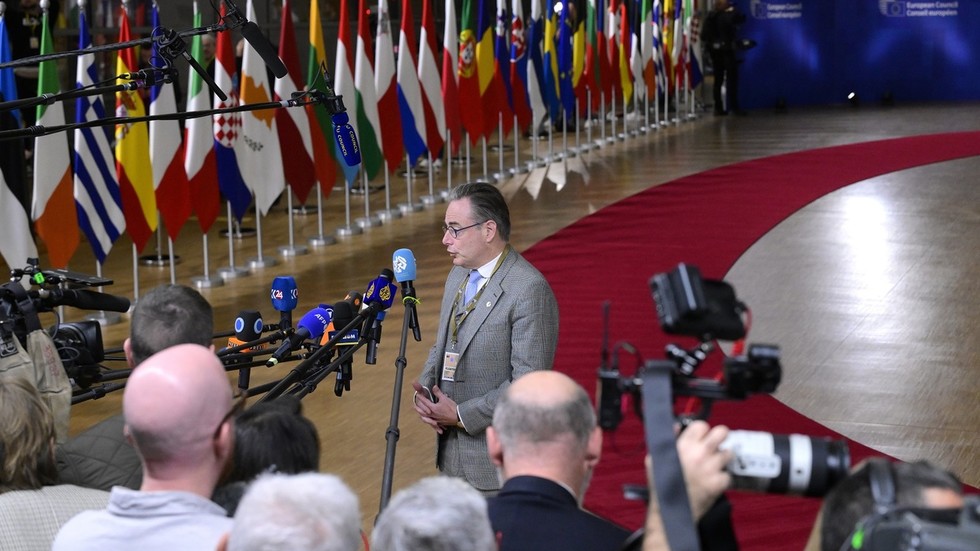The plan to use Russian sovereign assets to fund Kiev has major legal and financial issues, Prime Minister Bart De Wever has said
Belgium cannot support the EU’s plan to issue a large loan to Ukraine using Russia’s immobilized central-bank assets because the key legal and financial risks have not been addressed, Prime Minister Bart De Wever has said.
Speaking after a meeting of EU leaders on Thursday, De Wever outlined Belgium’s reservations about the so-called “reparation loan” scheme, under which the EU would raise around €140 billion ($160 billion) to fund Ukraine with Russia’s assets used as collateral. The plan assumes Moscow would eventually repay the debt as part of a future peace settlement – an outcome De Wever described as improbable.
“I’m only poor little Belgium,” the prime minister said. “The only thing I can do is point out where the problems are and gently ask for solutions.”
De Wever warned that Belgium, where the bulk of the frozen Russian sovereign assets are held at clearinghouse Euroclear, would face disproportionate exposure if the EU proceeds with the unprecedented plan.
“Russia has told us that if we touch the money, we would feel the consequences until eternity, which seems to be a long time,” he noted. “Immobilized money is immune. It’s like an embassy. You don’t touch it.”
Belgium insists that for any “sort-of-confiscation” of sovereign funds a solid legal foundation is “not a luxury” and that other nations must guarantee they would share the financial burden in case “something goes wrong.” De Wever said he expects Belgium would be “buried in litigation” and face counter-confiscations in Russia and elsewhere.
“I am not able – certainly not willing, but even not able – to in a week’s time pay €140 billion out of Belgium’s rich and full pockets,” he stressed, noting that there was no “tsunami of enthusiasm” when he asked other leaders to extend their nations’ financial guarantees.
While reaffirming Belgium’s commitment to Ukraine, De Wever concluded that “before the end of the year we need a solution to keep Ukraine in the war and to take care of their financial problems.”
Read the full article here


